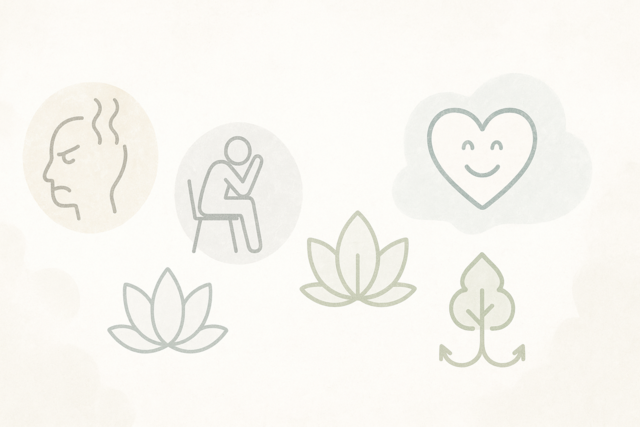Blogs allow information to be presented in a more casual way, and reading a blog post can feel more like a conversation or letter than a formal article. There are blogs all over the internet that cover social anxiety through a variety of angles, making it easy to find one that you like. The following article will discuss the reasons why blogs about social anxiety are such a valuable resource, what you need to look for, and a sampling of current social anxiety-related blogs. The article will also discuss the option of starting your own blog on social anxiety.
Why Look At Blogs About Social Anxiety?
As stated above, blogs present information in a casual manner. The person authoring the blog is knowledgeable on the topic at hand and could be considered an expert in that regard. However, they don't talk down to their readers and make it easy to understand. Looking at blogs about social anxiety is valuable for many reasons, including some of the following.
-
Relatable Sources and Content-- Blogs on social anxiety typically have authors who have social anxiety themselves, and they tend to have a strong voice because of their personal connection to the topic. It brings the stories to life for the readers and allows them to relate to the content. Rarely do you find an entire blog dedicated to social anxiety that is written by someone who does not have any connection to social anxiety. A blogger's personal connection to social anxiety is evident in their writing and the topics their posts cover, and readers tend to abandon blogs that lack that connection.
Since the author usually has social anxiety themselves or are a supporter of a loved one with it--depending on the topic of the blog--you can expect the content to be reliable and relatable. These authors are sharing their story so they can help others like themselves, and they can't do that by lying. What an author puts on their blog is either going to be backed up by their personal experiences or is going to come from a source that they trust.
-
Learn New Information--In addition to putting out content based on their personal experiences, authors will also share new information about their blog's topic. For social anxiety blogs, this could be things like new findings in research, treatment options, coping strategies, and other such pieces of information. Often, a news item will travel faster through blogs and social media than it does through official news organizations and sources. It is not uncommon for people to learn about something through a blog or other independent source long before it is discussed in news media.
In addition to learning about new information on social anxiety through blogs, you can also gain feedback on that information from the blogger themselves. For things like coping strategies, a blogger may test them out or put together a walk-through of how to use them. They may cover the pros and cons of the technique, how effective it is, what circumstances might prevent it from being truly effective, and possible modifications a person can make for it to work for them. Information such as that can be highly important, especially if a person is just developing social anxiety or their past coping methods are not as effective as they once were.
-
Expand Your Support Community--While most blogs are set up to with the author and their experiences as the primary focus, they do generate a sense of community amongst the author and readers. Authors usually allow readers to comment on posts for the sake of feedback, but this can create a sense of community support. It opens channels of conversation amongst the readers themselves, and between the readers and the author. Encouraging, supporting, and inspiring one another is a fairly common occurrence.
Some social anxiety blogs, especially those who are associated with larger groups like some of the support organizations, will have guest authors. Bigger blogs will usually have guest authors who are similar to the blog's main author--authority figures, professionals, and experts on social anxiety. However, blogs will feature posts and stories from readers. They may be readers who have been following the blog since its first post or they may have just started a few months before. Regardless, they temporarily assume the role of the blog's author and are allowed to tell their story and receive feedback support from their fellow readers.
What Should You Look For?
Finding a social anxiety blog isn't going to be too difficult; there are hundreds throughout the world to choose from. However, not all blogs are created equally. Some blogs may be better than others, while some may be downright questionable. A blog may be incredibly popular and covers a range of amazing topics related to social anxiety, yet it may not appeal to you.
When you look for social anxiety blogs to follow, you need to take a look at what it is they are posting and see if it is what you want to read. You will have your own set of requirements for what you want to see in a blog. Often, you may be looking for specific topics related to social anxiety or want to read something that takes into account another part of your mental health into account. Think about what you want to read about and take that into consideration when you look at blogs.
In addition to their coverage of certain topics, blogs may also have some other factors that you will want to look at. There are some traits that you want to check in order to catch any red flags that may signal that this blog isn't going to be as great as you expected it to be. You want to read a blog because it can help you in some way, but you won't get that if there's something sketchy about the author, the content, or the blog in general. As you look for a blog about social anxiety that you want to read, keep an eye out for the following issues.
-
Active Status--There's not much of a point in following a blog if it's not active, right? Sure, you can look through old posts but the information in them might be outdated or irrelevant to what you want. You will want to look and see if the blog's author is still posting content, and how frequently they are doing so. For blogs that have only one author, hiatuses, or breaks are a common occurrence. Usually, the most recent blog post will say if the author is taking a break, and for how long. Most blogs will have an archive of past posts and search ability for the topics. If the author takes frequent breaks--planned or otherwise--it will show in the blog's archive. You can also look at the archive to see when posts are released and if it is consistent with what the author has scheduled--daily, weekly, biweekly, etc.
-
Content Issues--When you are looking at a blog that follows a particular theme, you want to check that it actually follows that topic. Occasionally deviating from the main topic does happen and it's usually not that big of an issue. However, if it's a frequent occurrence then it can be problematic. If you're looking for a blog on social anxiety, you expect the content to be related to social anxiety and associated topics. Again, you can look through a blog's archive to see what it talks about. Most blogs also have a tagging system, where each blog is marked with certain key words for easy searching later on. Checking the key words can also be done in a blog's archive.
You may also want to check and see if the content is original. It's unfortunate, but sometimes people will steal content from others and release it as their own. Stolen posts will include details that just don't fit with the rest of the blog and other readers may call out incidents of theft. If something feels sketchy in regards to the content, then there is a chance that you may be right.
You should also keep an eye out for possible triggers that may appear in the content of the blog. Most blog writers who focus on mental health issues, especially social anxiety, will include trigger warnings at the start of their posts for the sake of their readers. Not every person, however, is going to have the same triggers and there may not be a warning for ones that affect your social anxiety. By the time that you begin to look for blogs about social anxiety, you should have already started to become familiar with your own personal triggers. Check the tags for posts to see if there are any topics included that may be problematic for you. If a blog frequently includes a trigger of yours in its posts, you may want to look elsewhere.
-
Are They Legitimate?--Sometimes, a blog is written by someone who is pretending to be who they say they are. Doing so negates the information and constitutes as lying outright to the readers. Some bloggers may stretch the truth for the sake of increasing visitors. Others may tailor their content according to trends amongst other social anxiety bloggers. In some cases, they may have sponsored content that is heavily biased or isn't as relevant to the rest of the topics the blog usually has.
Blogs Related to Social Anxiety
There are a log of social anxiety blogs out there, which can make it a little overwhelming to figure out which ones to follow. The following are some of the available social anxiety and mental health blogs that you may find and consider reading.
-
Diary of a Social Phobic--Diary of a Social Phobic is the blog of Scottish native Gemma, a student who has dealt with social anxiety and depression for many years. She uses the blog as a place to vent in addition to using it as a place to document her struggles and achievements with social anxiety. Some of her post topics do go outside of social anxiety, but not to an excessive degree. She also talks about other aspects of mental health in her life.
The blog does provide links to other social anxiety and mental health blogs that Gemma follows that may be of interest to readers. It should be noted that Gemma's native Scotland is fairly present in the blog; much of the writing includes Scottish slang and colloquialisms, which, while entertaining and interesting, may make some posts harder to read for those who are unfamiliar with them.
-
To Write Love On Her Arms (TWOLHA)--TWOLHA is primarily associated with depression and suicide prevention, and is much more active in those fields than anything else. However, it does have offer resources for all branches of mental health, including anxiety disorders like social anxiety. At large, it's a community of support that wants to let people know that they are not alone and that there is help available.
TWOLHA's blog features posts based on a specific topic of mental health, with many featuring social anxiety and other anxiety disorders. The posts are designed to be informational and inspirational for readers, and may function as more of a pep talk for some. The authors for TWOLHA's blog are long time followers, founding members, and associated mental health experts. While the information included in TWOLHA's blog posts may not always apply to social anxiety, it may be applicable for other parts of your life or for someone in your support system.
-
The Social Phobic--A UK-based blog, The Social Phobic is written by a gentleman named Nick who has spent most of his life with social anxiety. As he explains on the blog's website, he originally began writing about his social anxiety to help cope with it once he started treatment in 2007. The blog is largely a place that Nick uses to vent and express his thoughts in relation to his social anxiety. He does include discussions about how his social anxiety has affected his life, many of which are very open and honest in their details. In that regard, it may be a bit more difficult to read for some. The updates he posts are not on a strict schedule due to the effect that his social anxiety has on his life, but he does make an effort to post when he is able to.
Should You Consider Starting a Blog Yourself?
Maybe after a while of following some social anxiety blogs, you start thinking about starting one of your own. A blog can be a great way to vent frustrations you may have with your social anxiety. It can also be a means of gaining advice from an audience who is in the same position as you. Choosing to start your own blog to document your journey with social anxiety is a major personal decision. You should take into account your comfort level in regards to what you want to share. Many of your readers will be strangers that you never know offline, and there is the possibility that they may remain as such. Think about it and explore your options before fully committing to the task.






























